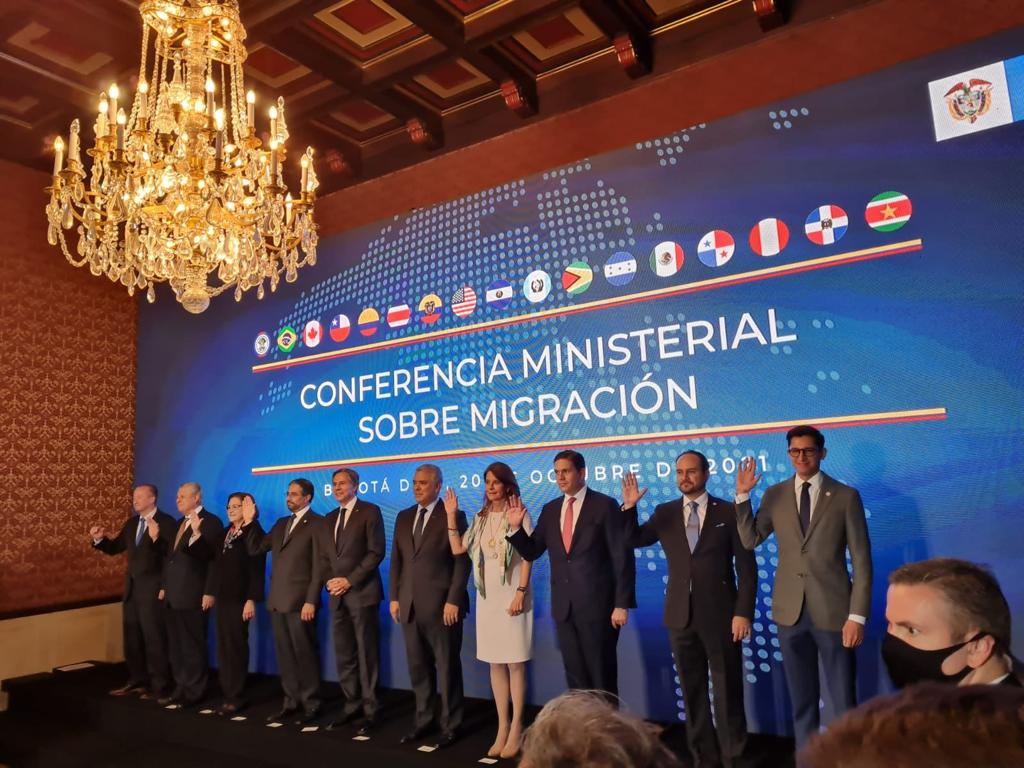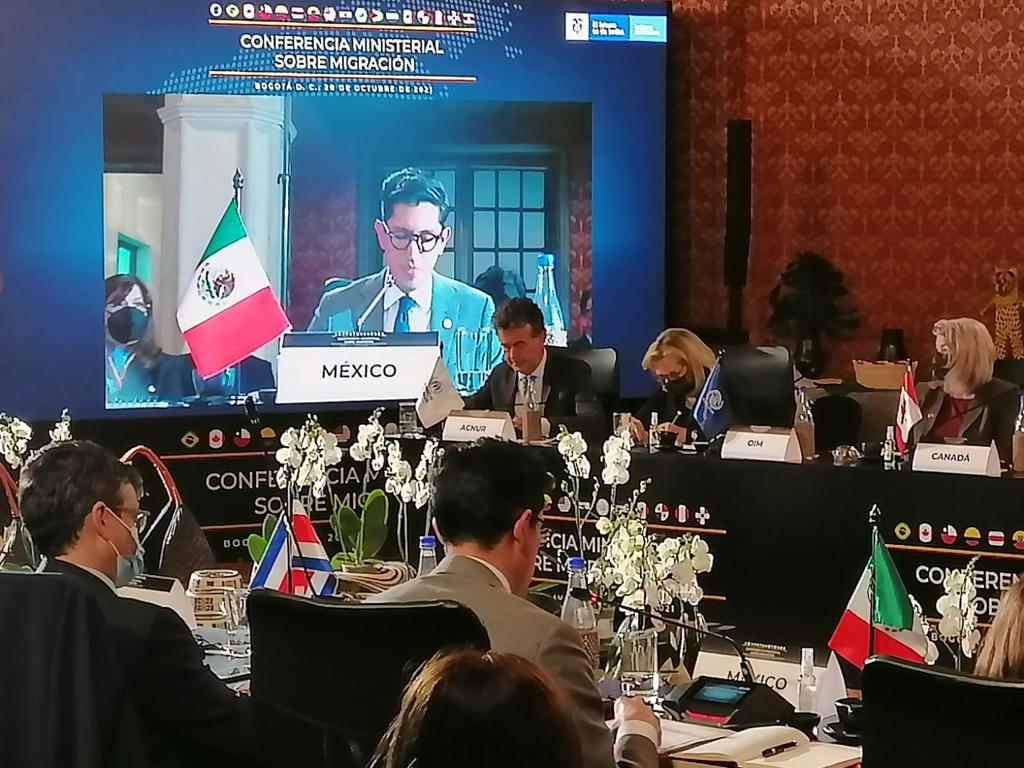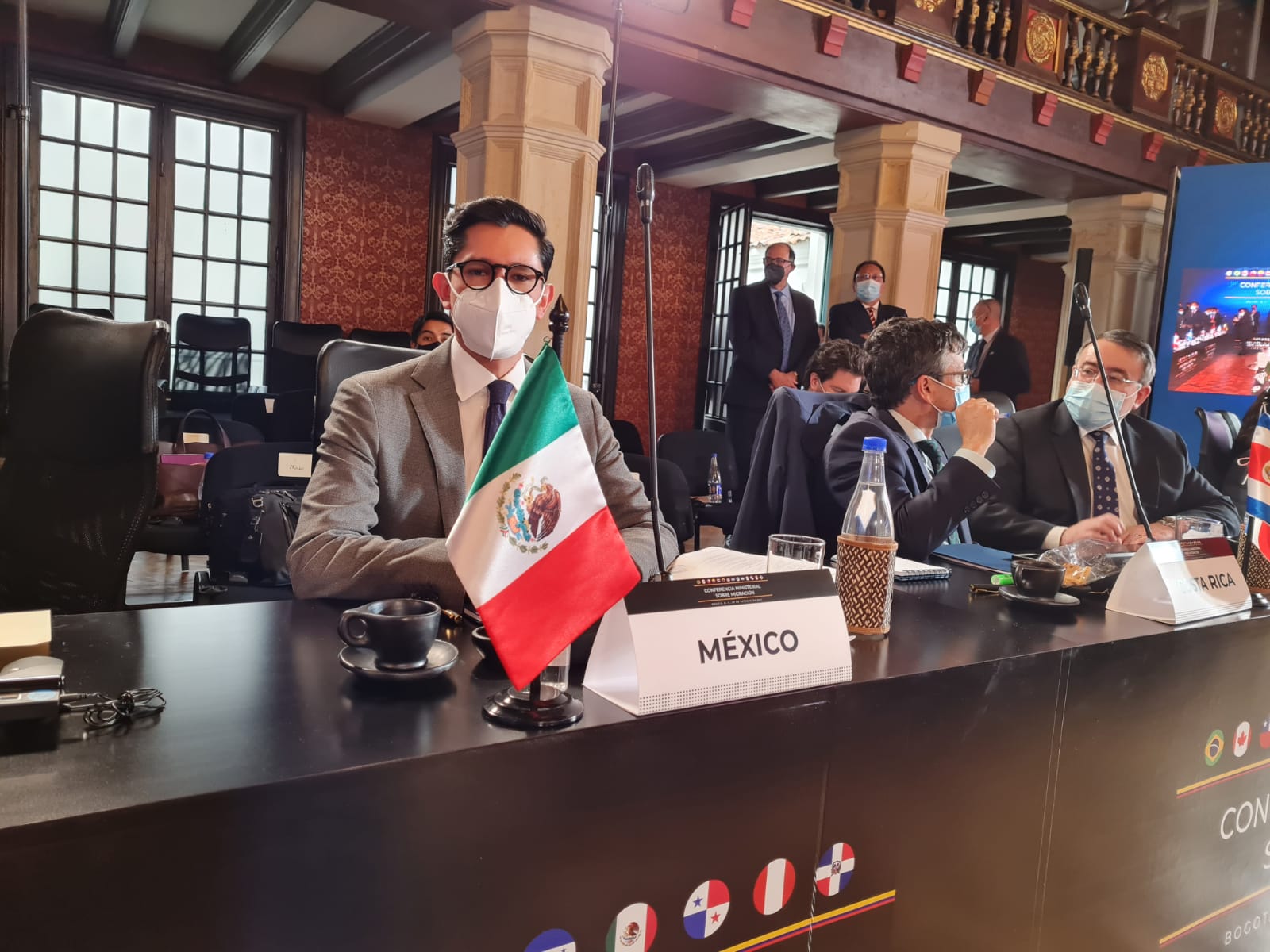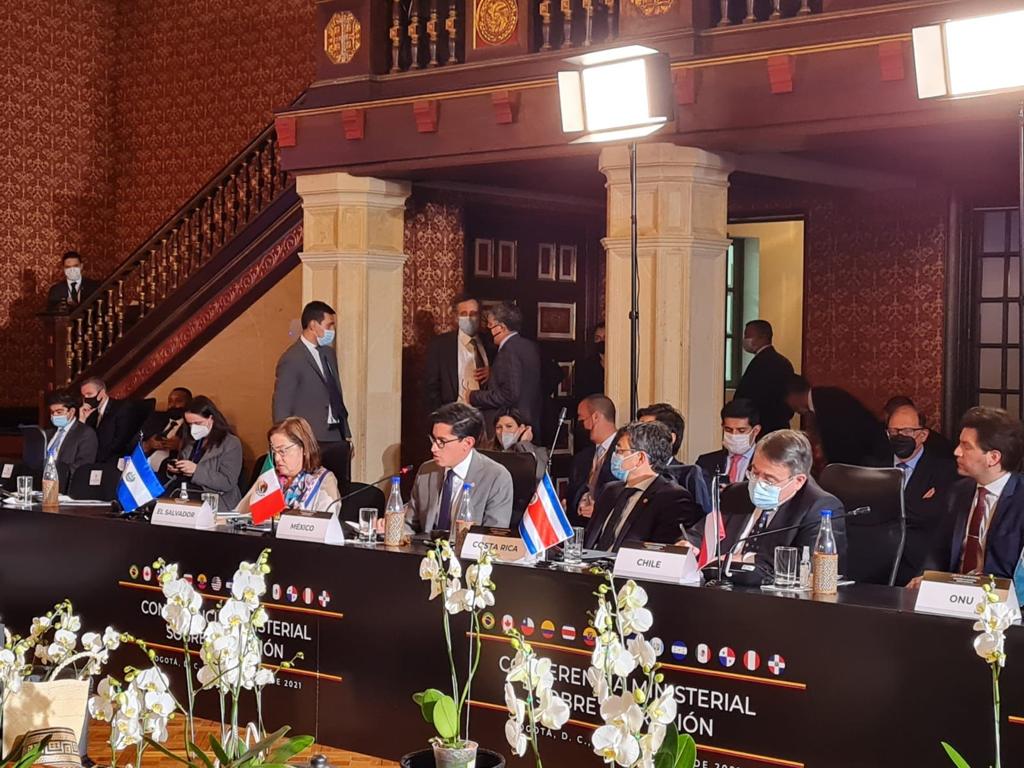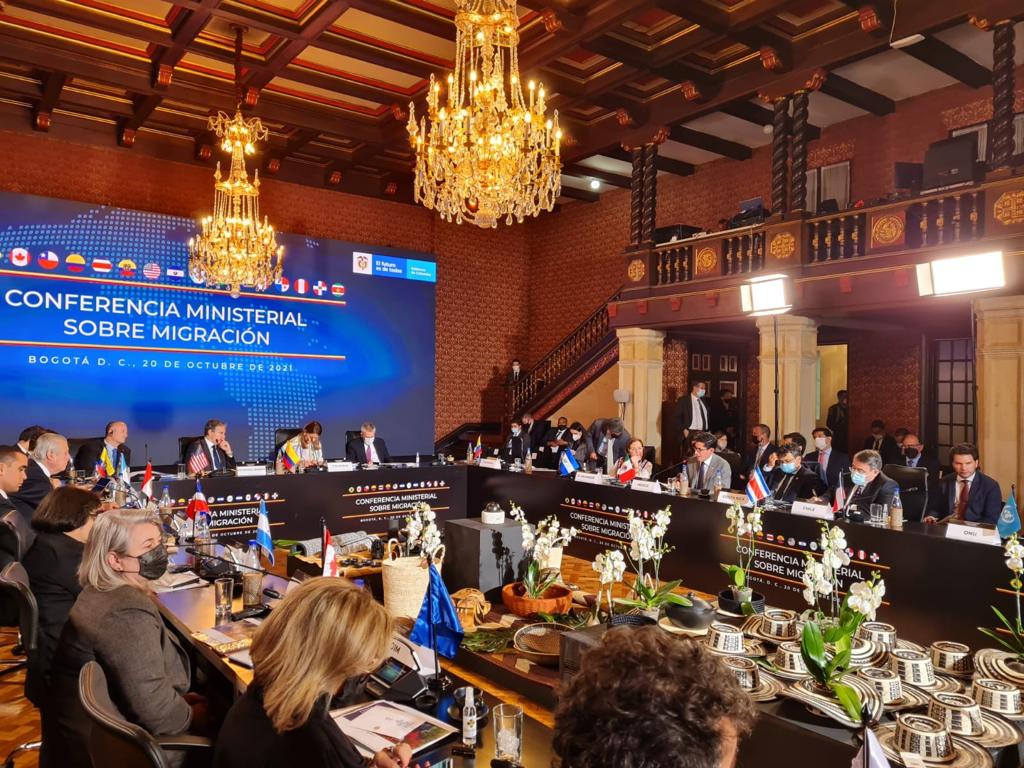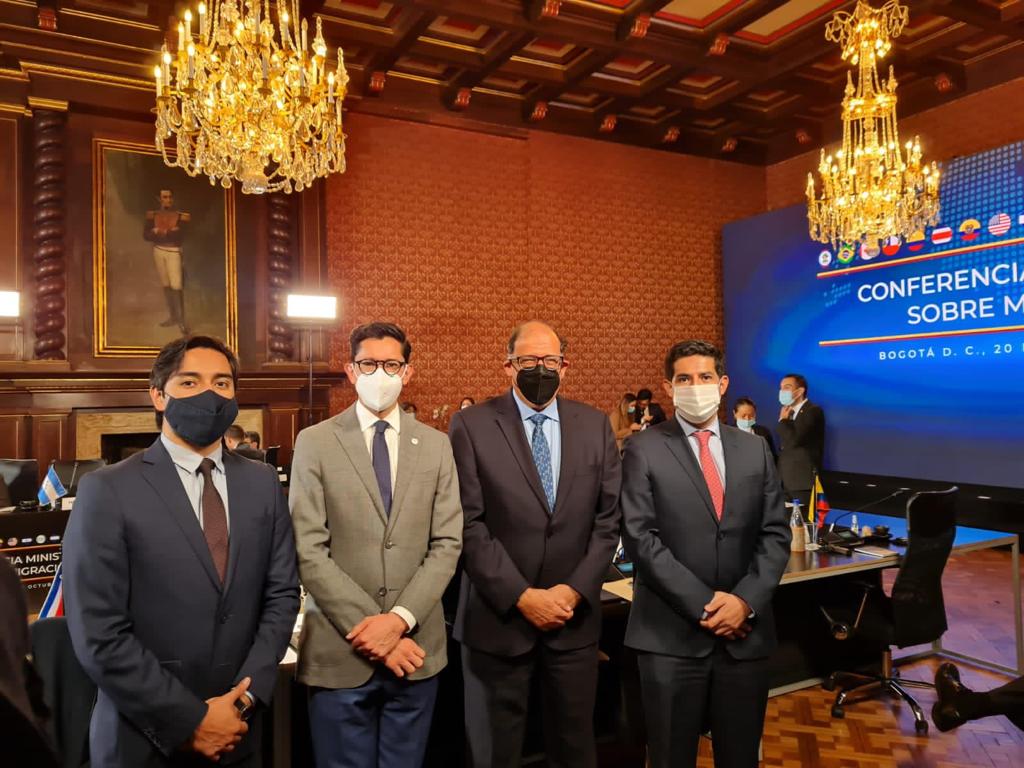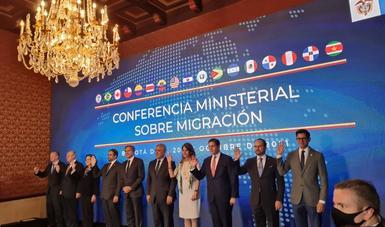- The Chief Officer for North America emphasized Mexico's position on the importance of addressing the structural causes of migration.
A ministerial conference on regional migration was held yesterday in Bogotá. The meeting, convened by the Colombian government, was attended by ministers and senior government officials from 17 countries of the Americas to discuss irregular migration in the region and ways to strengthen continental cooperation. The Mexican delegation was led by the Chief Officer for North America, Roberto Velasco. He was accompanied by the Director General for Latin America and the Caribbean, Martín Borrego.
In his remarks, Roberto Velasco emphasized the urgent need for more development cooperation programs. The main goal, as stated by President Andrés Manuel López Obrador and Foreign Secretary Marcelo Ebrard and set forth in the Memorandum of Understanding signed by U.S. Vice President Kamala Harris in Mexico City, is to address the root causes of migration.
The Chief Officer for North America said that the U.S. government's participation in regional development cooperation initiatives is essential. He also highlighted the progress of the Comprehensive Development Plan for Guatemala, Honduras, El Salvador and Mexico, designed by ECLAC. "The formula proposed by Mexico and the ultimate goal of our policies is to ensure the right of all individuals to remain in their hometowns by taking steps that directly increase their income," he said. He added, “As a region, we must make a great effort to communicate so that people in a situation of mobility are not deceived, and are made aware of the dangers that migrant smuggling and human trafficking networks and the long routes represent to their lives and safety."
He said that the Mexican government agreed with the proposals discussed at the ministerial meeting regarding cooperation in the American region to prevent, investigate, exchange information and prosecute the crimes of human trafficking and migrant smuggling. He also called for the consolidation of the cooperation mechanisms with multilateral organizations, the private sector and civil society, in order to strengthen a humanitarian and human rights perspective in the region.
The position of the Mexican government at the ministerial conference in Bogotá reaffirms the importance of dialogue and plurality as key diplomatic tools to achieve common regional objectives. Mexico welcomed the proposal to create a working group to combat migrant smuggling and human trafficking. Mexico will participate actively in this forum, in the belief that a successful regional solution requires the coordinated participation of all the nations of the Americas.
The conference was held in a hybrid format and led by President Iván Duque and Vice President and Foreign Minister Marta Lucía Ramírez of Colombia. Participants included Gilroy Middleton, Chief Executive Officer in the Ministry of Immigration of Belize; Brazilian Foreign Minister Carlos França; Michael Grant, Assistant Deputy Minister for the Americas of Canada; Chilean Foreign Minister Andrés Allamand; Costa Rican Foreign Minister Rodolfo Solano; Mauricio Montalvo, Minister of Foreign Affairs and Human Mobility of Ecuador; Alexandra Hill, Minister of Foreign Affairs of El Salvador; United States Secretary of State Antony Blinken; Nelly Karina Jérez, Deputy Minister of Consular and Migration Affairs of Honduras; Guatemalan Foreign Minister Pedro Brolo; Hugh Todd, Minister of Foreign Affairs and International Cooperation of Guyana; Erika Mouynes, Foreign Minister of Panama; Peruvian Foreign Minister Óscar Maúrtua; Roberto Álvarez, Foreign Minister of the Dominican Republic, and Albert Ramdin, Minister of Foreign Affairs, International Business and International Cooperation of Suriname.
The United Nations agencies were represented by Mireia Villar Forner, United Nations Resident Coordinator in Colombia; Pierre Lapaque, Representative for Colombia of the United Nations Office on Drugs and Crime (UNODC); Ana Durán, Chief of Mission Colombia at the International Organization for Migration (IOM); and Josef Merkx, representative to Colombia, United Nations High Commissioner for Refugees (UNHCR).
Representing Mexico were Roberto Velasco, Chief Officer for North America; Martín Borrego, Director General for Latin America and the Caribbean; Arturo Rocha, Director of Strategy and Public Policy for North America and Mexico's ambassador to Colombia, Alejandro García-Moreno.
